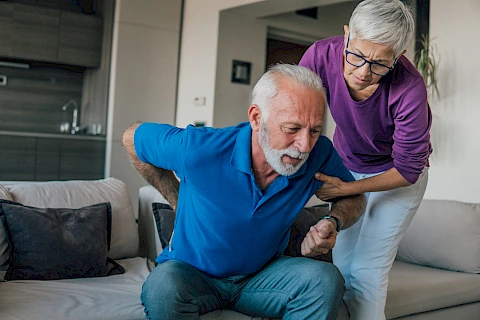
Chronic pain is a common challenge for seniors, affecting their daily lives and overall well-being. It's not just an inconvenience—it can significantly impact physical and emotional health. Effective pain management is crucial to maintaining a high quality of life for older adults.
Types of Chronic Pain in Seniors
Chronic pain can manifest in many forms, especially among seniors. You need to recognize the different types of pain to address them properly. Some common types of pain seniors might experience include arthritis, back pain, and neuropathic pain. Arthritis leads to stiff and painful joints and is often found in older adults. Chronic back pain, on the other hand, can be the result of years of posture issues or past injuries.
Understanding the distinction between acute and chronic pain is vital. Acute pain is temporary and typically results from a specific injury. In contrast, chronic pain persists over an extended period, often without a clear cause. For seniors, persistent pain from conditions like osteoporosis or diabetes requires careful management.
Non-Medication Strategies for Pain Relief
A holistic approach can make a big difference in managing chronic pain without relying solely on medication. Let's look at some effective strategies:
- Physical therapy and regular exercise are essential. Gentle activities like swimming or tai chi can improve strength, flexibility, and overall well-being. You should always check with your doctor if you're trying out a new type of exercise.
- Mindfulness and relaxation techniques, such as meditation or deep breathing exercises, can help manage stress and pain perception.
- Dietary considerations play a role, too. Maintaining a balanced diet rich in anti-inflammatory foods, like leafy greens and nuts, can help. Supplements like omega-3 fatty acids might be beneficial, but always consult a healthcare provider first.
- Supportive devices, such as ergonomic chairs or special mattresses, can alleviate pain by providing proper support and comfort.
When to Seek Medical Help
While non-medication strategies can significantly reduce pain, it's essential to know when to seek medical help. Consult a healthcare professional if pain is severe, persistent, or worsening. Also, if there are new symptoms like unexplained weight loss or changes in mood and energy, seek medical advice.
Medical experts offer pain management options, from physical therapies to prescription medications. They will help identify the best approach tailored to individual needs. At times, chronic pain management may require the expertise of multiple healthcare providers, such as physiatrists, neurologists, or pain specialists.
Senior Helpers of Polk County Supports Seniors With Chronic Pain
Managing chronic pain is a multifaceted journey. It involves understanding the types of pain, exploring non-medication strategies, and knowing when to seek medical help. Seniors can significantly improve their quality of life by exploring various options and reaching out for support.
If you or a loved one is struggling with chronic pain, don't hesitate to reach out for help. For those in Lakeland, Winter Haven, Bartow, Auburndale, and Haines City, Senior Helpers of Polk County is here to offer personalized assistance and support. Contact us today to learn more about how we can help manage chronic pain effectively.